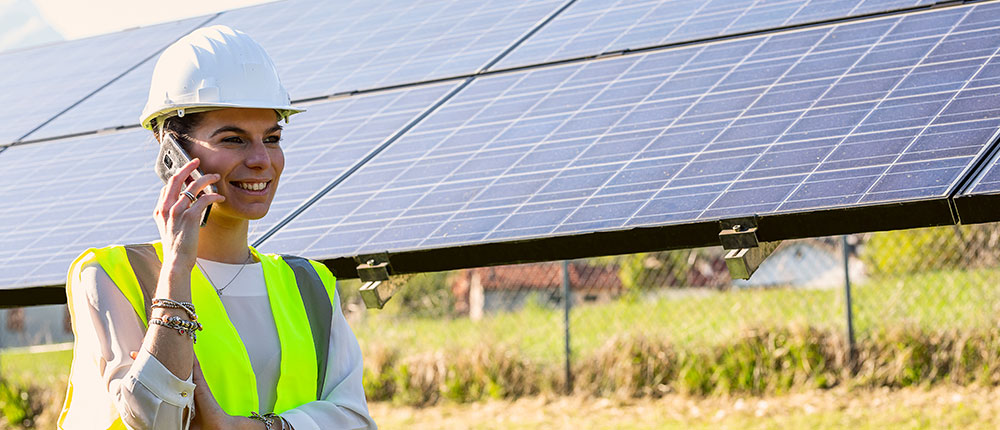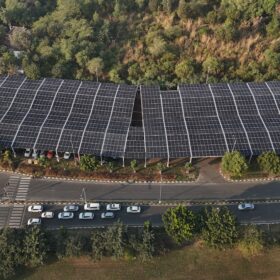The Energy and Resources Institute (TERI) has developed a blockchain-powered platform to facilitate peer-to-peer transactions of solar energy among consumers in the same neighbourhood.
Developed in partnership with Noida-based blockchain and IoT start-up Sofocle Technologies Limited, the platform uses blockchain technology to ensure security, transparency and efficiency in the transactions that will take place among consumers.
The platform—developed as a prototype for enabling a peer-to-peer transactional control—allows electricity consumers such as residential premises, malls, schools, or even small and medium enterprises to trade local power generation from rooftop solar plants among themselves.
Incentives to drive residential PV
The platform will help to promote the adoption of rooftop solar PV systems, particularly in the residential consumer segment, as it will incentivise consumers by providing additional incentives of trading among themselves, in addition to selling to the distribution utility.
India aims to install 40 GW of electricity capacity from rooftop based solar plants by 2022. The growth among residential consumers has been slow in comparison to the commercial and industrial segments.
“The successful deployment of this prototype would help in scaling up the adoption of rooftop solar in the domestic consumer category,” according to Alekhya Datta, fellow and area convenor, TERI, who conceptualised and led the development of this prototype after TERI’s pitch for the same won accolades at the Global Blockchain Congress at Kolkata in December 2018.
How it works
In this prototype, electricity subscribers can securely sign in to their accounts, set bids and quote their own price for locally generated energy. A separate portal for distribution utilities is also available for user and meter identity management.
The platform also generates reports displaying total settlements, total units produced and consumed via tokens.
“Subscribers to such local energy markets-based services can trade clean solar energy in the form of energy tokens, just like cryptocurrency,” according to Sweta Malik and Nilesh Hadiya, who are part of the TERI team that worked on the prototype development.
The prototype is now planned to be scaled up to a field pilot with possible implementation on actual network of a distribution utility or in an institutional campus using smart meters. The real-time demand and excess electricity generation available from rooftop installed solar plants will be monitored and prospective buyers and sellers will have their bids cleared through a market-based process.
Blockchain as a driver to foster EV adoption
TERI has previously demonstrated use of blockchain technology as a facilitator for electric vehicle (EV) adoption in India—a market that is largely held back by lack of adequate charging infrastructure.
A TERI presentation at the Global Blockchain Congress in West Bengal last year showed that a blockchain-based application could enable individuals to share their private EV chargers with other EV customers near their premises, thereby increasing the utilisation of privately owned EV chargers, and recover high upfront investment cost.
Based on a peer-to-peer mode of communication, EV owners near a charging station can search for and use the stations to charge their vehicle’s batteries.
Owners of EV charging stations that can be registered on blockchain-based smart-phone apps would be a part of a public directory and could make their charging stations available to the public at times when they are not using them. In return, they can be incentivised to offer charging facilities to other EV owners through set protocols.
This content is protected by copyright and may not be reused. If you want to cooperate with us and would like to reuse some of our content, please contact: editors@pv-magazine.com.









32 comments
By submitting this form you agree to pv magazine using your data for the purposes of publishing your comment.
Your personal data will only be disclosed or otherwise transmitted to third parties for the purposes of spam filtering or if this is necessary for technical maintenance of the website. Any other transfer to third parties will not take place unless this is justified on the basis of applicable data protection regulations or if pv magazine is legally obliged to do so.
You may revoke this consent at any time with effect for the future, in which case your personal data will be deleted immediately. Otherwise, your data will be deleted if pv magazine has processed your request or the purpose of data storage is fulfilled.
Further information on data privacy can be found in our Data Protection Policy.